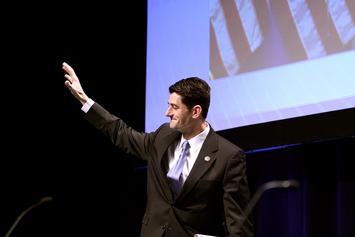
The decision by Speaker Paul Ryan to leave the House reflects the failings of our current flawed political configuration. Ryan may have been personally a cut above his critics on the right and left, but he ended up the victim of his own ideology.
We often talk about “political Islam” as a challenge. But America too, over the past two decades also has been driven by two dueling political religions — libertarianism and progressivism. Encouraged by ideologically driven donors, supported by their own media and academic claques and dominated by university-educated professionals, these ideologues are often deaf to the needs of middle- and working-class Americans. Their failings opened the door for the ideologically incoherent and emotionally unmoored Donald Trump.
The strange death of libertarian America
Throughout much of the past quarter century, libertarianism — largely the negation of government regulation and reliance on private initiative — has been the unofficial faith of the GOP. As the old-time religion of social conservatism married to overseas adventurism lost credibility, and deservedly so, libertarian ideals provide younger conservatives both an upbeat message and a welcomed consistency.
Now intellectual right-wingers fear that the much anticipated “libertarian moment” has come and gone. Free marketers may have won many intellectual arguments, but they never developed a sustainably popular political program. Virtually all the GOP candidates running against Trump embraced standard principles on deregulation and free trade as well, and for the most part, immigration. All went down in flames against Trump’s strongly nationalist and even xenophobic appeal.
Once the tax bill passed and regulatory reforms, notably in the energy sector, were enacted, libertarians like Ryan shared little common ground with Trump. The president was never going to follow their lead on entitlements given that almost nine in 10 voters favor maintaining Social Security and a majority favor expanding Medicare. For any politician seeking a political future, attacking entitlements is largely a suicide mission.
Read the entire piece at The Orange County Register.
Joel Kotkin is executive editor of NewGeography.com. He is the Roger Hobbs Distinguished Fellow in Urban Studies at Chapman University and executive director of the Houston-based Center for Opportunity Urbanism. His newest book is The Human City: Urbanism for the rest of us. He is also author of The New Class Conflict, The City: A Global History, and The Next Hundred Million: America in 2050. He lives in Orange County, CA.
Photo: Gage Skidmore from Peoria, AZ, United States of America (Paul Ryan) [CC BY-SA 2.0], via Wikimedia Commons












